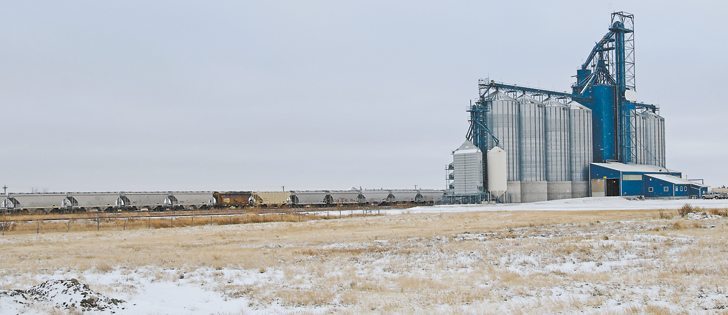A law passed last year designed to improve service for railway customers has delivered no noticeable benefits for Canada’s agricultural shippers, says an executive with the Western Grain Elevators Association.
That’s because no major grain companies have attempted to negotiate service agreements with Canada’s major railway companies since the Fair Rail Freight Service Act was passed by Parliament in June 2013, said WGEA executive director Wade Sokbowich.
“There have been no service levels agreements that have been negotiated to my understanding nor have there been any service level agreements arbitrated by the Canadian Transport Agency,” Sobkowich said.
Read Also

Using artificial intelligence in agriculture starts with the right data
Good data is critical as the agriculture sector increasingly adopts new AI technology to drive efficiency, sustainability and trust across all levels of the value chain.
“Our confidence in the ability of a shipper to successfully get a service level agreement with teeth is very low.”
The Fair Rail Freight Service Act was passed last June after a lengthy process aimed at improving rail service for shippers.
The grain industry, one of the biggest shipping groups served by Canada’s major railway companies, was a key stakeholder in the process.
Farm organizations, grain companies and others involved in the grain trade told Ottawa that new legislative measures were needed to ensure more reliable and predictable rail service for agricultural shippers and to address a perceived imbalance between the railways and their customers.
The Fair Rail Freight Service Act gives shippers the right to negotiate service level agreements (SLAs) with railways.
It also appoints the Canadian Transportation Agency to arbitrate an agreement if shippers and railways are unable to negotiate a deal themselves.
However, the process is untested so far, largely because shippers feel the provisions are insufficient.
When draft legislation was being reviewed, the WGEA and other grain industry stakeholders proposed amendments aimed at strengthening shippers’ ability to negotiate agreements.
Among other things, they wanted a process that gave shippers more power to negotiate monetary penalties in the event of poor railway performance.
“We asked for a suite of six amendments to the legislation, which the government did not accept,” Sobkowich said.
“One of the reasons (no grain companies have tried to negotiate a service level agreement) is that we can’t negotiate a penalty into an SLA…,” he added.
“You can try to negotiate that with the railways, but if you fail, it’s out of scope for the arbitrator. The arbitrator can’t rule on penalties.”
The merits of the Fair Rail Freight Service Act have come into focus this winter as farmers and grain companies struggle to move a record-sized crop to market.
Total production of Canada’s major agricultural crops was roughly 30 percent larger than production in 2012-13.
Until a few weeks ago, grain car unloads at Canada’s key port locations were roughly on par with unloads last year.
But recently, numbers have fallen due to cold weather and other factors.
According to recent figures compiled by Quorum Corp., the federally appointed grain transportation monitor, total unloads are about three percent behind 2012-13 levels.
In an interview with The Western Producer in late January, federal agriculture minister Gerry Ritz said Ottawa is taking steps to address rail service and other supply chain deficiencies.
However, improvement won’t occur overnight, he said.
Over the past few weeks, Ottawa has been consulting with railways and collecting feedback from dissatisfied shippers within the agriculture sector.
Ritz has also held discussions with Quorum to discuss how to improve the way railway service and supply chain performance is measured.
Ottawa has also kicked in $1.5 million toward a five-year industry-led initiative that will look for new ways to measure and report supply chain and railway performance.
“The railways have assured me that they will take up the challenge … and I said, ‘we will be looking over your shoulder’,” Ritz said.
“Having said that, there is also some co-ordination to be required by the line companies to make sure that they’re sending to port that which is needed to fill boats, not just what they have contracted from farmers.”Ritz acknowledged that the provisions contained in the Fair Rail Freight Service Act remain untested.
“Well, no one’s made use of it.”
He said the act and other regulatory components such as the railway revenue cap will likely be included in a review of rail transportation systems to be conducted by Transport Canada in 2015.
















